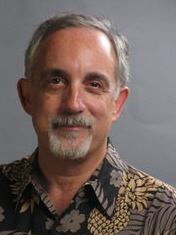Second Life and social responsibility


“I think you are in a blessed position. You are the pioneers and the founders of this new world, and you have unbelievably great opportunities to put your stamp, to leave a legacy, to create things which will endure and have value. The opportunity to participate in the creation of a new world is really a rare one, and so I hope you cherish it. And you’ll face challenges. In every disruptive technology I’ve seen, there has always been a dynamic in which the early adopters begin to be pushed aside as the whatever it is begins to become mainstream. There will be tensions as the frontier is civilized, on all sides, of people who like it the way it is, and people who want it to be what it might become.”
“But the most important thing I want to say and leave you with is that with the privilege of creating a new world or new worlds, I believe, comes responsibility. And really the responsibility is to make that new world a better place. There is no one vision or value of what that better place will be, it will be slightly different or maybe very different to different people. But in a new world free of a lot of the constraints we’re used to, which empowers individuals, my hope is that Second Life will continue to be a world that is more inclusive than the terrestrial world, and will enable groups of people that are marginalized in the real world to be first-class citizens and residents.”
“It’s still very early. I’m hoping that inclusiveness and Second Life being a level playing field for everyone remains and increases as a core value. And finally I would just say to each of you, I hope you would think carefully about what a better world means to you, and as you go about Second Life you do things, build things, and interact in ways that further your own vision of that better world.”
His idealistic vision has some echoes of the Matrix, virtual worlds that are potentially more real in the minds of individuals than brick and mortar, real blood flowing, skin on skin reality. Second Life as a training ground for fixing what's wrong with the so-called real world.
Mitch goes on to talk about some of the challenges ahead for Second Life and Linden Lab:
“Innovation in this world is going to be driven by the residents, not by the company. We know that, but it is worth repeating because this is a radical idea. The Wikipedia is driven by the same dynamic, and it sort of stands everything on it heads, because the company can’t be in charge of what happens next. That does not leave room for the innovation of the community to think up new things and try thing and take risks and succeed and fail. The company’s job has to be to facilitate the conditions of that innovation, in my view.”
“Some of that is infrastructural. The grid has to be up, the performance needs to be reliable. That’s no small undertaking. The core capabilities of that system also have to continue to expand, especially to take advantage of Moore’s Law and improve performance in underlying computing technology, but also to create the base capabilities to invent the new services and new kinds of things.”
“There’s also a role in the overall management of the economy. Economies don’t manage themselves, and some of the most interesting parts of our board meetings is when we talk about the money supply and what policy do you set, how transparent are you, how do you control the money supply to support growth and not have too much inflation, all the things you need to do to create conditions for economic prosperity.”
“The final thing the company has to do, there needs to be a kind of civil society, the equivalent of rule of law conditions, so that people can come and do whatever their thing is without unwarranted interference. My vision is that over time the governance of Second Life passes much more to residents and structures run and managed by residents and groups of residents. That’s a large challenge to figure out how to do that, nobody has ever done anything remotely like that that I’m aware of, but the future is going to be in a kind of world which is of, by, and for the residents of it, and it will become increasingly indistinguishable from terrestrial reality. There will be a huge number of issues about what that means. There will be problems that will consume everybody’s energy and attention that we cannot even articulate today.”